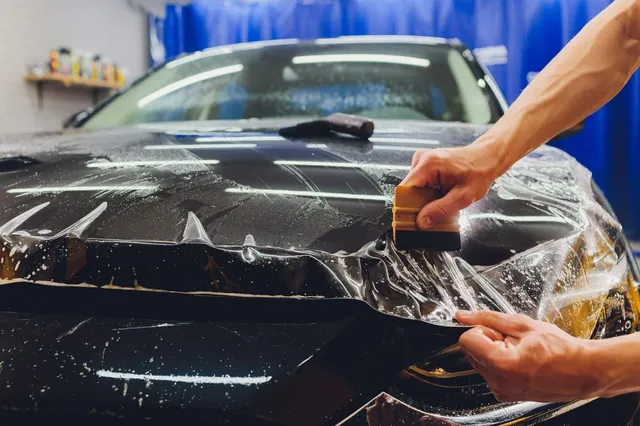Ultimate Guide To Maintenance And Care For Paint Protection Film

Paint protection film (PPF) is a fantastic investment to safeguard your vehicle's paintwork from chips, scratches, and other damages. However, to maximize its lifespan and ensure optimal performance, proper maintenance, and care are essential. In this comprehensive guide, we will provide you with invaluable tips and advice to help you maintain and care for your paint protection film effectively.
Understanding The Importance Of Maintenance:
Before delving into the specifics of maintenance, it's crucial to comprehend the significance of properly caring for your paint protection film. Regular maintenance not only enhances the film's longevity but also preserves the appearance and functionality of your vehicle. By following these guidelines, you'll be able to enjoy the benefits of PPF wrap for years to come.
Washing Techniques For Paint Protection Film:
A. Choose The Right Products: When washing your vehicle with PPF, opt for pH-neutral, non-abrasive car wash soaps. Avoid using harsh chemicals, abrasive sponges, or brushes that can potentially damage the film.
B. Hand Wash Method: Hand washing is the safest approach for PPF maintenance. Use a clean, soft microfiber wash mitt or sponge to gently clean the film.
C. Rinse Regularly: Rinse the mitt or sponge regularly to prevent any dirt or debris from accumulating and scratching the film.
D. Drying Techniques: After washing, use a soft, clean microfiber towel to dry the PPF. Avoid using a traditional towel or chamois, as these can leave fine scratches on the film.
Dealing With Stubborn Stains And Contaminants:
A. Bug Splatter And Tar Removal: Promptly remove bug splatter, tar, or other contaminants from the film's surface. Utilize specialized automotive bug and tar removers, applying them carefully with a soft cloth. Avoid scrubbing vigorously, as it may cause damage.
B. Tree Sap And Bird Droppings: If your vehicle is affected by tree sap or bird droppings, promptly clean them off with a gentle pre-wash solution or isopropyl alcohol. Allow the solution to dwell for a few minutes before gently wiping it away with a soft cloth.
C. Oil And Grease Residue: In case of oil or grease residue, use a mild degreaser or isopropyl alcohol to dissolve the substance. Wipe gently with a microfiber cloth, taking care not to rub aggressively.
Avoiding Damaging Chemicals:
Certain chemicals can harm the paint protection film, compromising its performance and appearance. It's essential to steer clear of these substances, including gasoline, brake fluids, lacquer thinners, and harsh solvents. If accidental contact occurs, quickly rinse the area with water and seek professional assistance if needed.
Protection Against Environmental Factors:
A. Parking Considerations: Whenever possible, park your vehicle in shaded areas or use a car cover to shield it from direct sunlight. UV rays can gradually degrade the PPF and affect its clarity.
B. Winter Precautions: During cold weather, protect your PPF from harsh elements. Avoid using ice scrapers directly on the film and wash off road salt regularly to prevent corrosion.
Professional Maintenance And Inspection:
While regular maintenance can significantly extend the lifespan of your paint protection film, it's also wise to schedule periodic professional maintenance and inspection. Experts can assess the film's condition, address any minor issues, and provide advice on proper care techniques.
- Industry
- Art
- Causes
- Crafts
- Dance
- Drinks
- Film
- Fitness
- Food
- Games
- Gardening
- Health
- Home
- Literature
- Music
- Networking
- Other
- Party
- Religion
- Shopping
- Sports
- Theater
- Wellness
- News


